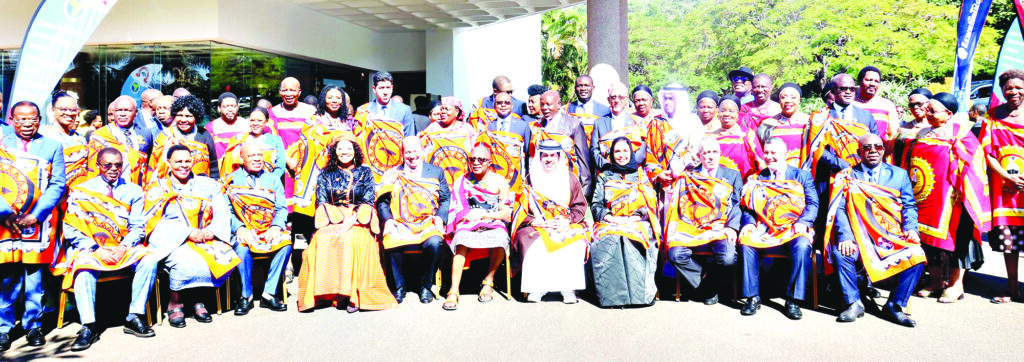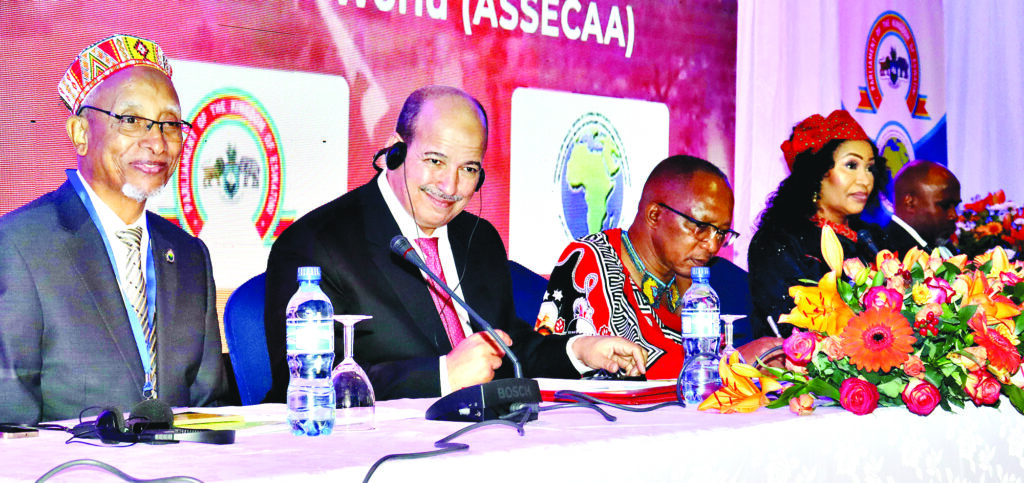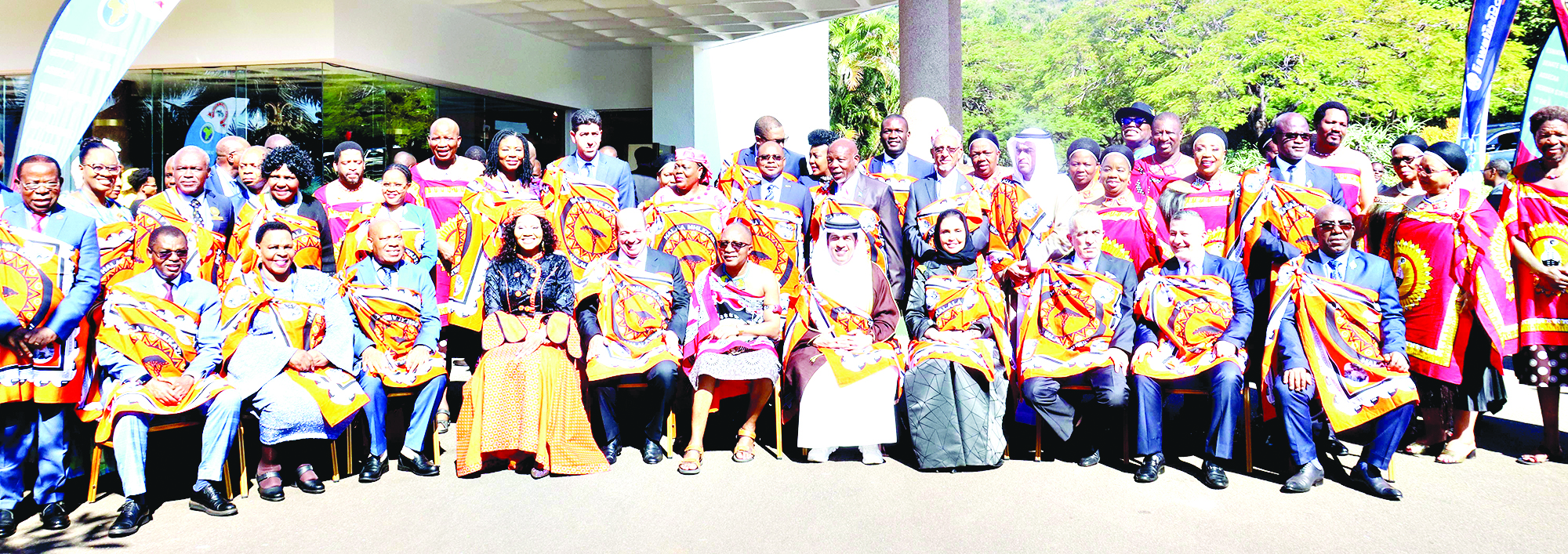…Arab world & African politicians in Eswatini for solutions to spur economies

By Khulile Thwala
The Arab world and Africa have descended in Eswatini to participate in a retreat aimed at facilitating discussions that will significantly influence the economies of the two regions.
The 10th Retreat of the Association of Senates, Shoora, and Equivalent Councils of Africa and the Arab World (ASSECAA) was officially opened on Thursday as 22 member states spearheaded discussions around two themes.
These themes are ‘The impact of multifaceted international crises on the economies of Africa and the Arab World’, as well as ‘The significance of the Green Economy in Achieving sustainable development in both regions’.
Countries present include the Kingdoms of Morocco, Arab Emirates, Jordan, Saudi Arabia, Bahrain, Lesotho and Egypt, Algeria, Burundi, Yemen, Zimbabwe, Nigeria, the Republic of South Africa, Rwanda and Kenya.
Read More: Analysis-North Africa backslides toward swirling debt troubles
The statutes of ASSECCA prescribe that a Retreat is held at least once a year. According to Senate President Lindiwe Dlamini, the aim is to forge alliances to help the Arab World and Africa address impending issues. ASSECAA remains the only Secretariat that aligns the two regions.
UN Eswatini Resident Coordinator George Wachira, in his remarks, said the two themes up for discussion are closely interlinked. He said the theme of multifaceted international crises was relative to the UN Secretary-General’s recent sentiments on the matter.
“The issues include Covid-19 and the impact it has had on the world, as well as climate change which has been brought about by extreme weather conditions. As leaders we need to remember that the global crises significantly impact us and our countries bear the largest impact,” he said.
The two regions discussed the significance of a Green Economy in Achieving Sustainable Development in Africa and the Arab World to promote Afro-Arab dialogue and consultation on strategic and priority issues in the African and Arab regions, and to shed light on the significance of a Green Economy in achieving sustainable development in Africa and the Arab World.
The aim of the discussions on the green economy was also to regularly organise meetings and dialogues among senates, SHOORA, and equivalent councils in the member states and to undertake joint actions to advance cooperation and exchange expertise.
Read More: SADC Secretariat promotes region at AIM Global 2023 in Abu Dhabi
The Association of Senators is also looking at coordinating the efforts of senates and equivalent councils in regional and international conferences and organisations. Under the theme of the Impact of the Multifaceted International Crises on the Economies of Africa and the Arab World, the association focused on how over the past three years, the world has experienced negative economic shocks, primarily the spread of the Covid-19 pandemic.
It was stated that the world has made strenuous efforts to overcome the resulting economic difficulties, bearing heavy costs, most notably the huge rise in public and private debts, the increase in inflation rates, the high costs of energy, minerals, and food, and supply chain disruptions.
Therefore, as the world came out of the crisis tunnel, the Russian-Ukrainian war began, which re-mixed global economic conditions, strained international relations, raised levels of uncertainty, deepened the crisis in energy, food, mineral, and fertiliser prices and raised concerns about their supplies.

Read More: African Energy Bank to fund oil, gas on the cards
These matters were all put into consideration in the discussions, as the conflict is still a major blow to the global economy including the two regions. According to the Senators Association, as a result of these successive crises, price increases for food commodities have been the largest since 2008, and container shipping rates worldwide have increased by about 10 times, with a significant increase in the levels of internal freight, while the increase in energy prices over the past two years has been the largest since the 1973 oil crisis.
These were the pressing matters discussed during the retreat.




